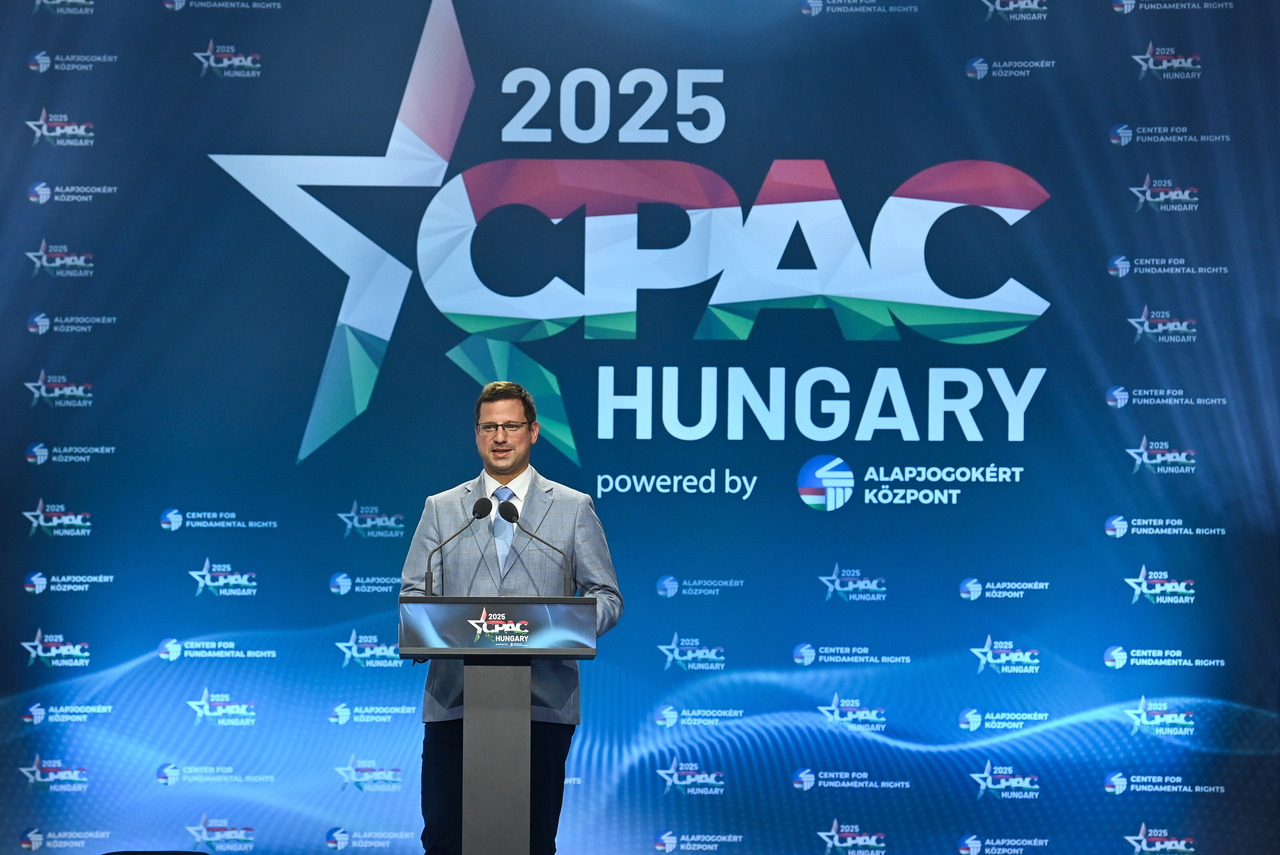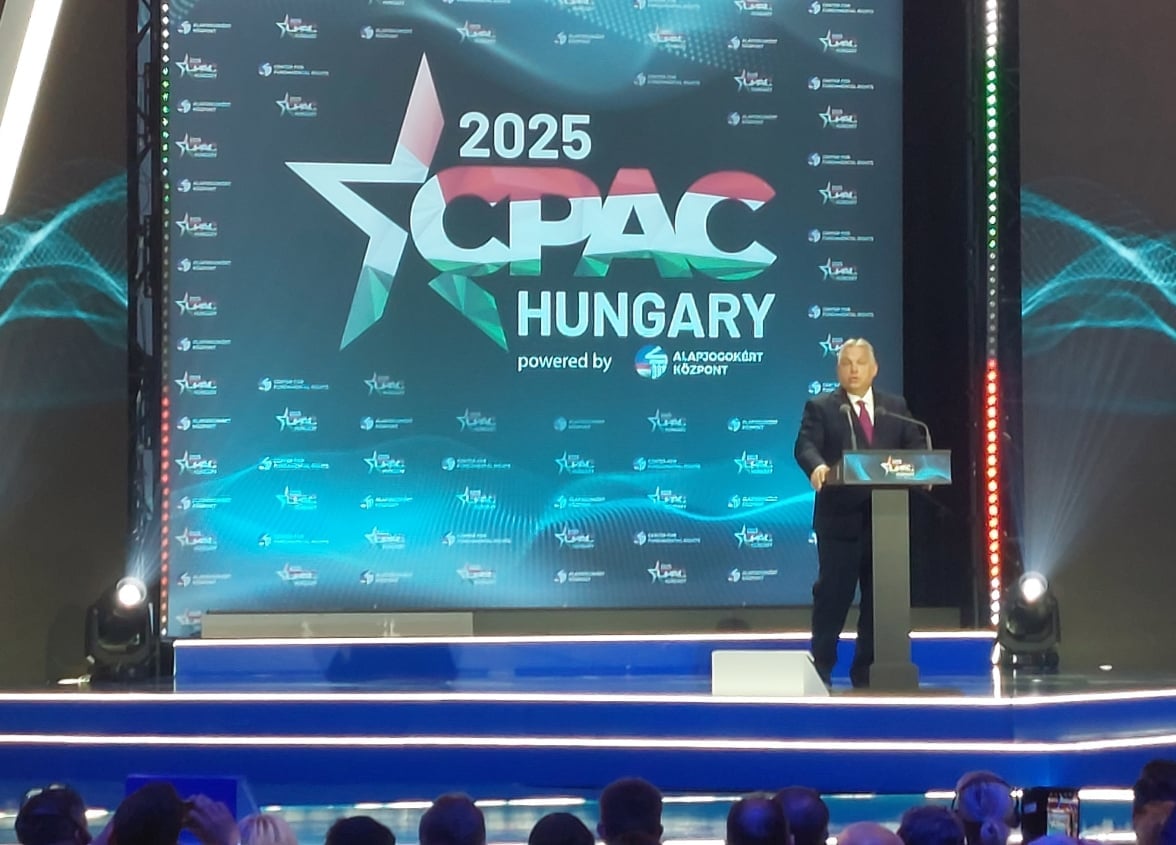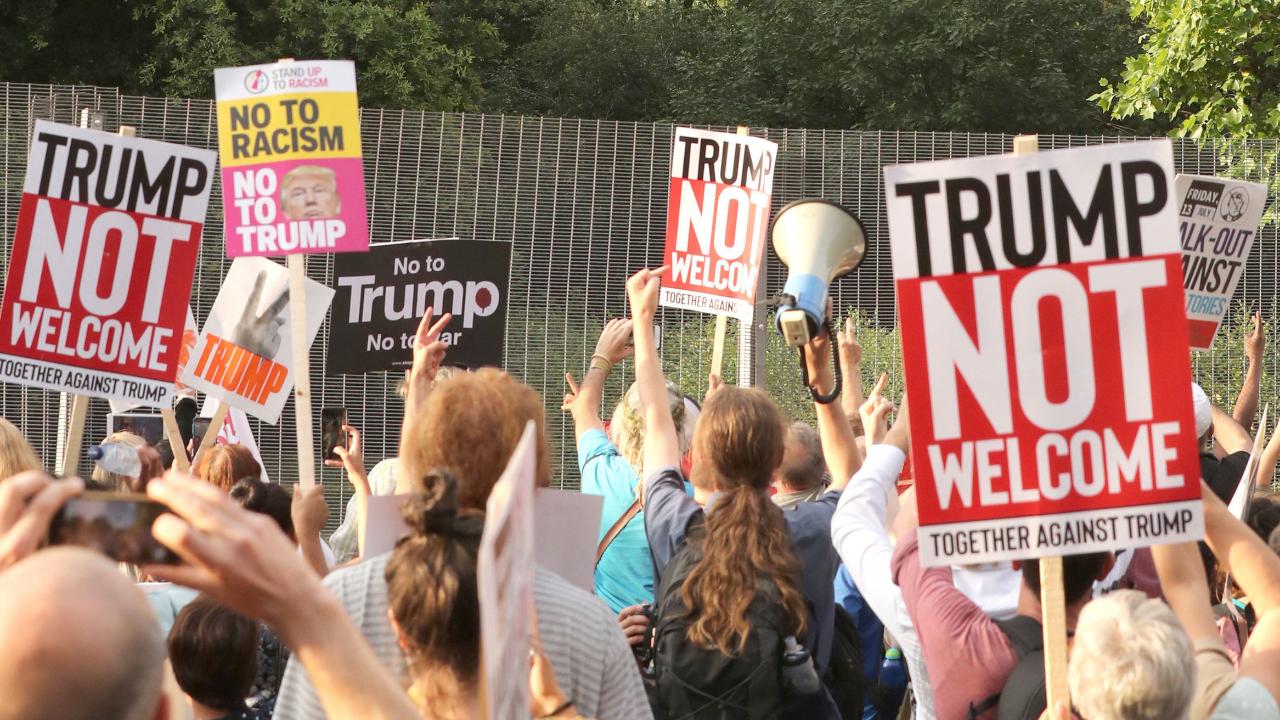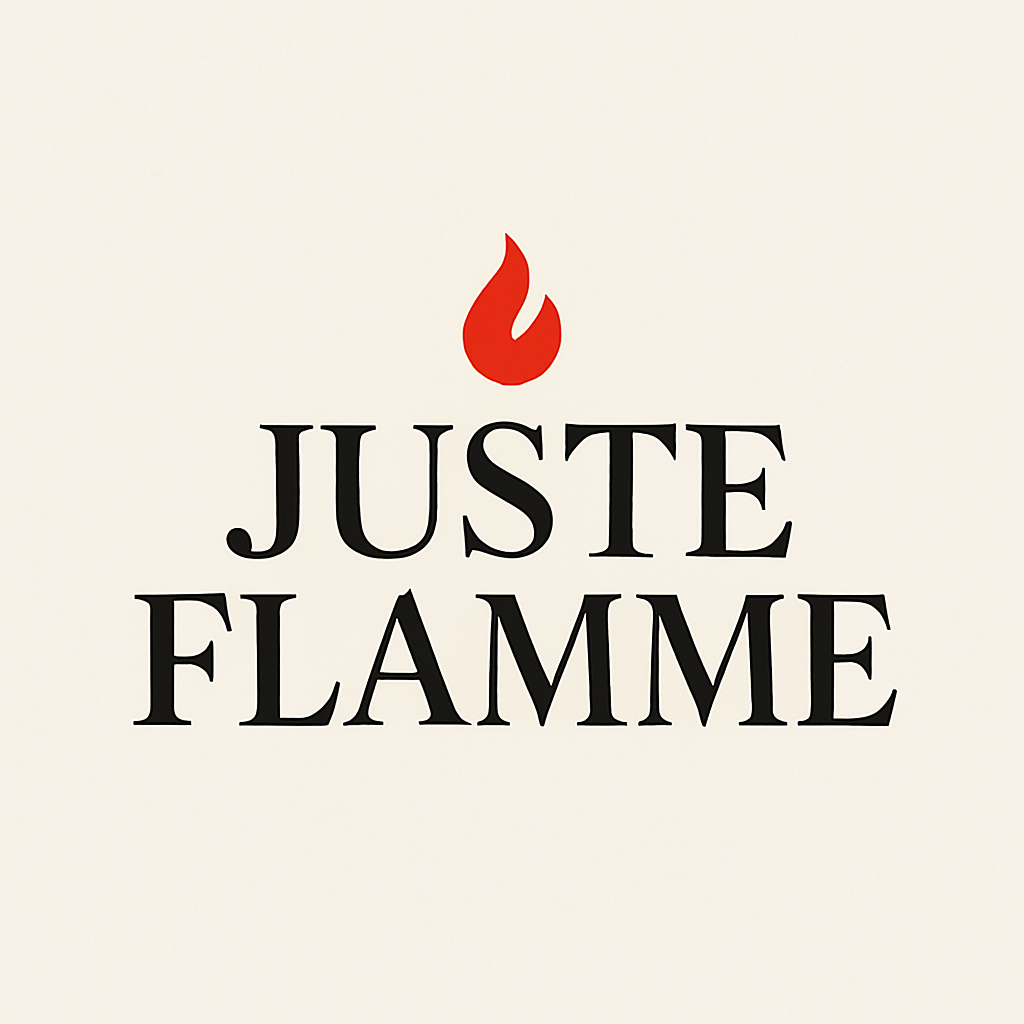Authoritarianism Without Borders: How CPAC Became the Far-Right’s Global Command Center
From Hungary to Poland, CPAC is no longer a conference: it's a weapon in the global culture war, forging a transatlantic alliance to erode democracy from within.

Democracy in the Crosshairs
In today's political climate, authoritarianism doesn't arrive by coup. It infiltrates through media events, ideological alliances, and high-profile conferences disguised as harmless conservatism. The Conservative Political Action Conference (CPAC) is now the clearest example of this shift, evolving from a stage for U.S. Republican talking points into a sprawling international network aimed at reshaping Europe's democratic landscape.
What once began as a domestic political gathering has morphed into a strategic operation for exporting MAGA-style governance abroad. CPAC's European ventures, from Budapest to Jasionka, aren't diplomatic events. They're staging grounds. Launchpads for nationalist ideology, coordinated disinformation, and electoral influence masked as cultural solidarity.
This isn't about debate. It's about domination. It's a playbook written in Washington, tested in Hungary, and now adapted for countries across the EU. And unless we recognize it for what it is, a soft coup campaign waged through the culture war, we risk watching European democracy hollowed out from the inside.
Strategic Expansion: CPAC's Offensive in Europe
What we're seeing unfold in Europe is not a cultural exchange, but a calculated incursion. CPAC is no longer simply a forum for conservative voices in the United States. It has rebranded itself as an international mobilization engine, aligning with far-right regimes and movements across the globe, and Europe has become its most aggressive battleground.
The rollout began in Budapest, where Hungarian Prime Minister Viktor Orbán offered not just his hospitality, but his political model. To CPAC's American strategists, Orbán is more than an ally. He is the prototype, a leader who has shown how to hollow out democratic institutions, centralize power, and disguise it all as patriotic governance. From judicial overhauls to media capture and anti-minority legislation, Hungary's authoritarian slide has become a blueprint for others in CPAC's orbit.
The event in Hungary was far from symbolic. It served as a recruitment hub, linking American MAGA figures with European strongmen and their enablers. The language was familiar, defending "Western civilization," attacking "gender ideology" and warning against "illegal immigration", but the purpose was tactical: to forge a transatlantic front against liberal democracy itself.
CPAC's next stop was Poland. But this was no random detour. Scheduled to coincide with a high-stakes presidential election, the Polish edition of CPAC functioned more like a campaign rally than a policy conference. Prominent American officials appeared on stage to praise nationalist candidates, casting them as Europe's last hope against cultural and political decay. These weren't abstract messages. They were targeted interventions in a sovereign nation's political process.
By hosting events in countries where right-wing populism is already on the rise, CPAC is not importing ideas. It's consolidating a new political order, one that disregards democratic norms in favor of power consolidation, one that prizes identity politics over pluralism, and one that considers dissent an existential threat rather than a democratic necessity.
We must stop calling this a cultural gathering. It is a logistical operation. An ideological alliance. And ultimately, a coordinated campaign to redefine conservatism across Europe into something barely distinguishable from authoritarian nationalism.
The danger isn't just what CPAC says: it's where it says it, when it says it, and who's listening. In transforming itself into a global export hub for anti-democratic ideas, CPAC has become a transatlantic force of destabilization, disguised as tradition.
From Sideshow to Strategy: CPAC and the Rise of the Authoritarian Network
For years, CPAC was dismissed by many as a theatrical outlet for America's political fringes — a place for soundbites, fringe campaigns, and conservative self-promotion. But what was once a sideshow has now evolved into a global strategy. CPAC has become the command center of a sprawling authoritarian network that stretches far beyond U.S. borders.
This transformation began with the rise of Trumpism, which turned CPAC into something more potent and dangerous than a typical political conference. No longer concerned with conservative policy debates, it became an arena for grievance politics, personality cults, and right-wing extremism. But while much of the world focused on what this meant for the United States, CPAC quietly started exporting the model abroad.
The template is simple and replicable: partner with nationalist parties, reframe the local political landscape through the lens of a global culture war, and offer ideological and media support that local actors often lack. CPAC doesn't just fly in speakers, it builds pipelines. Between American strategists and European operatives. Between MAGA-aligned think tanks and far-right media outlets. Between donors, campaign consultants, and authoritarian-leaning candidates.
Hungary was the testing ground. Poland was the escalation. And now the model is spreading to Spain, Italy, the Netherlands, and beyond. The goal is to create a unified, cross-border bloc of nationalist forces that speak the same language: anti-EU, anti-minority, anti-democratic.
But CPAC doesn't just traffic in speeches. It builds infrastructure. It lends legitimacy to far-right actors who previously stood on the margins. It trains them in media manipulation, social engineering, and voter mobilization through fear. It provides access to American influence networks and social media ecosystems that can amplify fringe narratives into national debates.
This is not the old conservatism of small government and individual liberty. It is a new authoritarianism wearing the clothes of patriotism. CPAC helps rebrand extremism as tradition. It launders conspiracy theories into political platforms. And it builds a pipeline of disinformation, outrage, and electoral sabotage across borders.
What's emerging is a kind of "authoritarian international", a coalition of illiberal parties and leaders who learn from one another, support one another, and replicate each other's methods with alarming speed. Whether it's Orbán gutting courts, Trump attacking electoral legitimacy, or Le Pen rehabilitating fascist ideology, the tactics are converging. And CPAC is the amplifier.
We are no longer looking at isolated right-wing movements. We are witnessing a synchronized global campaign to erode democracy from within, using democratic institutions themselves as the tools of their undoing.
The question is no longer whether CPAC is dangerous. The question is how much damage it can do before we treat it like the international threat it has become.

Hijacking the Language of Democracy
One of the most effective weapons in today's authoritarian playbook isn't brute force. It's semantics. The far-right doesn't storm the gates waving swastikas. It walks through the front door quoting constitutions. What CPAC and its allies have mastered is the art of linguistic inversion, taking the vocabulary of democracy and twisting it into something unrecognizable.
Words like "freedom," "patriotism," "family," and "sovereignty" are central to this strategy. Not because they reflect any real commitment to liberal democratic values, but because they are universally appealing and therefore perfect vessels for manipulation.
When CPAC speakers talk about "freedom," they rarely mean civil liberties for all. They mean the unchecked ability to discriminate under the banner of religious belief or national identity. When they invoke "law and order," it isn't about impartial justice. It's about weaponizing state institutions against political opponents, migrants, activists, and journalists. "Family values" becomes code for rolling back LGBTQ+ rights and reasserting patriarchal norms. And "national sovereignty"? That's just a polite term for abandoning international law and escaping democratic oversight.
This is not just propaganda. It's infrastructure for authoritarian capture.
By co-opting the language of democratic legitimacy, CPAC and its partners create a dangerous illusion: that they are defending democracy, when in fact they are dismantling it. They wrap autocratic ambitions in flags and anthems, giving voters the false sense that they are preserving a nation's identity while eroding the systems that hold it together.
The result is a slow-motion gutting of democratic substance. Courts still exist, but their independence is eroded. Elections are held, but the outcomes are increasingly predetermined through media manipulation, disinformation, and institutional bias. Parliaments convene, but critical voices are pushed out, marginalized, or criminalized.
This is how democratic backsliding works in the 21st century. Not through the abolition of institutions, but through their repurposing. CPAC's ideological model doesn't seek to destroy democratic frameworks — it seeks to hollow them out and fill them with authoritarian content.
The far-right no longer needs to burn books when it can simply redefine what education means. It doesn't need to jail all journalists when it can flood the media ecosystem with noise, distrust, and state-funded spin. It doesn't need to ban opposition parties outright, it can just starve them of media access, resources, or legal protections.
This is the soft coup. The silent transformation of liberal democracy into a system that looks the same on the outside, but serves a fundamentally different purpose. One that protects power, not rights. One that punishes dissent, not corruption. One that elevates loyalty over law.
And CPAC has become the international masterclass in how to execute it.
To resist this hijacking of language, we must reclaim the meanings behind the words. "Freedom" must again mean the right to exist without persecution. "Patriotism" must include defending democratic institutions, not destroying them. "Family" must be inclusive. "Sovereignty" must never mean isolation or impunity.
Because once the words fall, the structures soon follow.
Cross-Border Election Meddling in the Culture War Age
We often imagine foreign election interference as a covert operation like hackers, troll farms or intelligence agents. But in today's political landscape, influence doesn't need to be hidden to be dangerous. In fact, the most effective form of electoral manipulation now comes dressed in suits, broadcast on livestreams, and cheered from international stages. CPAC's presence in European politics is exactly that: open, coordinated interference disguised as ideological solidarity.
What we saw in Poland during CPAC's 2025 edition was not a coincidence. The event was strategically timed to overlap with a high-stakes presidential election. The keynote speakers, mostly American conservatives and MAGA loyalists, didn't just comment on Polish politics, they endorsed specific candidates. They didn't advocate for democracy, they reinforced nationalist narratives that delegitimize opponents and frame liberal institutions as threats to sovereignty.
This is interference in all but name.
When high-profile American figures use their platforms to bolster far-right candidates in other countries, they tip the scales. They inject foreign authority into domestic debates. And in fragile democracies or countries facing internal polarization, that kind of external validation can make all the difference.
But CPAC's influence doesn't stop at speeches. It extends into media ecosystems, where quotes from American politicians are amplified across far-right channels. It seeps into campaign messaging, often mirroring MAGA-style attack lines about immigration, LGBTQ+ rights, and globalist elites. And it brings with it financial networks, PR resources, and political consultants who offer the tools of modern manipulation, from voter targeting to algorithmic disinformation.
Let's call this what it is: a new model of electoral warfare.
Unlike traditional interference, which lurks in the shadows, CPAC's model thrives on visibility. The spectacle itself is part of the strategy. It legitimizes fringe voices by putting them on stage with globally recognized figures. It floods the political discourse with emotion, fear, and identity politics. And it distracts from the actual policies or consequences at stake in the election.
This kind of influence operation doesn't just aim to help a particular candidate. It aims to reshape what voters perceive as "normal." When CPAC swoops into a country and praises authoritarian-leaning leaders, it signals to the public that their views are mainstream and even internationally validated. That matters, especially in societies where democracy is already strained.
For Europe, this represents a dangerous erosion of electoral sovereignty. The EU has strict laws around campaign finance, foreign influence, and media balance. But CPAC operates in the grey zone, as a "conference," not a campaign. As "free speech," not propaganda. And that makes it hard to regulate, even as its impact grows.
If liberal democracies want to preserve the integrity of their elections, they must begin to recognize this new mode of interference. It's not just about fake news. It's about transnational narrative-building. Strategic endorsement. Legitimacy laundering.
What CPAC offers is not just support but also it cover. It gives far-right candidates the aura of international momentum. It rebrands nationalism as part of a global resistance movement. And it shifts the conversation away from governance and toward grievance.
In an age where elections are fought as culture wars, CPAC has become a high-powered weapon, and it's being aimed directly at the heart of European democracy.
The Rise of Informal Authoritarian Diplomacy
Diplomacy, as we've known it, is being outflanked. While governments still exchange ambassadors and debate policy in formal forums, a new form of international influence is flourishing in the shadows, one driven not by treaties or statecraft, but by ideology. This is the realm of informal authoritarian diplomacy, and CPAC has become one of its primary engines.
While traditional diplomacy is rooted in legal agreements, multilateral cooperation, and democratic norms, CPAC's version functions through loyalty, spectacle, and alignment with autocratic values. It operates outside official government channels, yet it has an outsized impact, shaping political alliances, legitimizing strongmen, and coordinating transnational disinformation narratives.
This isn't soft power. It's parallel power.
Trumpism, in both its domestic and international form, has built a network of political actors who bypass diplomatic institutions and instead forge their alliances through shared contempt for liberalism, the EU, multilateralism, environmental regulation, gender equality, and civil rights. CPAC offers the meeting space, the talking points, and the transatlantic connective tissue.
The effect is dual-layered. On one hand, the United States (at least officially) still champions democratic governance through institutions like USAID and the State Department. On the other, the MAGA movement, through CPAC, affiliated think tanks, and far-right media, is actively undermining that very agenda. The result is diplomatic whiplash: while one hand offers support for civil society, the other congratulates authoritarian figures for silencing it.
In this informal axis of autocrats and aspiring strongmen, ideological alignment matters more than borders or diplomatic protocol. Orbán is treated as a visionary. Bolsonaro becomes a martyr. Le Pen is hailed as a savior of "Western civilization." Poland's hardliners are praised for "protecting sovereignty." And these relationships don't remain symbolic, they manifest in synchronized narratives, coordinated legislation, and joint messaging strategies that spill across languages and political systems.
This shadow diplomacy serves a clear function: to bypass accountability and normalize authoritarianism under the guise of international cooperation. It creates an echo chamber of validation for leaders who would otherwise be isolated. It frames their attacks on independent media, courts, or minorities not as abuses of power, but as bold acts of national preservation. And it elevates their status on the global stage while giving cover to their domestic repression.
Unlike diplomats, CPAC's emissaries don't answer to voters or parliaments. They don't represent the public interest. They represent an ideological crusade. And because they operate through private networks, political conferences, and media partnerships, they can shift narratives far faster than traditional institutions can respond.
Europe must wake up to this new reality. It is not enough to counter foreign influence with laws and fact-checking. We must also recognize the political infrastructure of authoritarian diplomacy, the international conferences, the donor networks, the strategic endorsements, and name it for what it is: a parallel foreign policy designed to replace the democratic consensus with a reactionary one.
Because while our diplomats are negotiating climate targets and trade agreements, CPAC is busy redrawing the ideological map of Europe, one autocratic handshake at a time.
Democratic Collapse by a Thousand Cuts
The dismantling of democracy in our time does not arrive with tanks in the streets or declarations of martial law. It happens incrementally, systematically, and often legally. Bit by bit, the institutions that hold democratic societies together are chipped away, until what remains is democratic in name only. This is not some distant hypothetical, it's already underway. And CPAC, along with its network of far-right collaborators, is helping accelerate it across Europe.
The tools of this new authoritarianism are subtler than in the past, but no less destructive. A judiciary is "reformed" to favor the ruling party. Public broadcasters are "restructured" until they become mouthpieces. Protest rights are quietly curtailed in the name of "security." Funding for NGOs and independent journalism is slashed under the guise of "neutrality." Meanwhile, opposition leaders are painted as traitors or "foreign agents."
None of this looks like a coup. But the outcome is the same: the weakening of pluralism, the erosion of checks and balances, and the slow suffocation of dissent.
CPAC and the broader MAGA sphere don't simply applaud this process, they institutionalize it. They package it as a roadmap for other governments to follow. They teach it. They celebrate it. And they help translate it from one political context to another, turning isolated cases of democratic decline into a global playbook.
Orbán's tactics in Hungary are now echoed in other parts of Europe. Poland's past judicial crackdown became a model for circumventing European legal oversight. In Italy, far-right rhetoric once considered taboo now dominates the political mainstream. In each case, CPAC has played a role in amplifying these shifts through conferences, media exposure, and cross-border political partnerships.
This is not about electoral wins alone. It's about reengineering the entire political environment to ensure permanent dominance: elections that still happen, but cannot truly bring change; media that still exists, but only within narrow ideological boundaries; civil society that is allowed to breathe, but not speak freely.
The result is a creeping authoritarianism that retains the façade of democracy while stripping it of its substance. And because it happens gradually, it's often tolerated or even normalized until the damage is irreversible.
Europe's biggest risk today is not an outright seizure of power by fascists. It's the gradual erosion of democratic life through technicalities, procedural manipulation, and cultural warfare. A slow boil, not a blaze. One court decision here. One "media reform" there. A new "family values" law that quietly excludes whole communities. A political purge justified by anti-corruption slogans. Piece by piece, the democratic architecture weakens.
The only way to counter this is to recognize the method behind the chaos. To stop seeing each attack on rights, institutions, or pluralism as isolated incidents. To understand that we are facing a coordinated strategy of democratic decay, one that disguises itself as patriotism, tradition, or national renewal.
Democracy rarely collapses all at once. It dies in stages. And every delay in recognizing that reality brings us closer to a point where the reversal becomes impossible.

No Middle Ground: The Fight for Democracy Is Now
The line has been drawn. What we are witnessing in Europe, and around the world, is not just political polarization. It is a battle between two irreconcilable visions of society, one rooted in democracy, pluralism, and human dignity; the other in authoritarianism, exclusion, and permanent control. And in this battle, there is no middle ground.
CPAC and its growing network of far-right actors are not simply offering a different opinion. They are building an international alliance to replace democratic norms with autocratic rule, cloaked in the language of tradition and liberty. They are not engaging in debate. They are waging a campaign against civil rights, against press freedom, against independent institutions, and ultimately, against the idea that power should ever be accountable.
The threat is real, and it is present. It doesn't hide anymore. It brags. It parades itself across stages in Warsaw, Budapest, and Dallas. It announces its disdain for liberal democracy while pretending to defend it. And too many are still treating it as just another political trend, as if it will fade on its own.
It won't. This is not a phase. It's a project.
To confront it, we need to stop pretending that the center will hold without effort. Neutrality, silence, and endless attempts to "understand both sides" are not virtues in the face of authoritarian creep: they are enablers of it. The institutions of democracy are only as strong as our willingness to defend them. And right now, that defense must be active, deliberate, and unflinching.
This means calling things by their name. Authoritarianism is not a "populist alternative." Disinformation is not a "different perspective." Hate speech is not free speech. And coordinated interference in elections, even when it comes dressed as a political conference, is not democracy in action. It's sabotage.
We need coalitions, across borders and ideologies, that put democracy first. We need civic education, media reform, digital accountability, and laws that protect rights before they are eroded. We need courage from those in power and vigilance from those on the ground.
And most of all, we need clarity. Because the future of Europe and the democratic world depends on our refusal to be lulled into complacency while the foundations are being pulled from beneath us.
There is no neutral zone in this fight. No room for wishful thinking. No time for delay.
The attack on democracy is organized, international, and accelerating.
Our response must be too.
📨 Stay Informed. Stand Up.
All our work is published freely on Juste Flamme's Substack, because the defense of democracy should never be paywalled.
But if you believe in what we do, confronting authoritarianism, exposing disinformation, and standing up for a free, inclusive society, consider becoming a paid subscriber.
Your support helps us go further, dig deeper, and reach more people in the fight for truth and liberty.
